Top Class Actions’s website and social media posts use affiliate links. If you make a purchase using such links, we may receive a commission, but it will not result in any additional charges to you. Please review our Affiliate Link Disclosure for more information.
IN EARLY 2020, WE RETREATED INTO OUR HOMES AND QUARANTINED (mistakenly) hoping the coronavirus pandemic would be short-lived.
We stock-piled necessities and hoarded toilet paper like bears going into hibernation.
At the time, I was quarantined with most of my family in a small rural town in Arizona. Stocking up on groceries and cleaning supplies was not terribly difficult for us.
My sister, however, lives in Seattle, Washington. In the early days of the pandemic, Seattle was a major hotspot for coronavirus, which made it extremely difficult for my sister to get the necessities she needed to quarantine.
Thus, I resolved to send my sister the ultimate coronavirus care-package.
As I sat at my computer, Amazon.com up in my browser, ready to cultivate an impeccable care-package, I thought, “What does a kid-sister need to survive in a 300-square-foot studio-apartment?”
The answer was easy, Ramen.
Ordering the Ramen? Not quite as easy. Many sellers on Amazon were completely sold out.
Bloomberg News reported a 578% increase in online sales of instant Ramen, known commonly as a long-keeping food, between Feb. 23 and March 21.
The inventory that remained was priced so high that my “ultimate” care-package was quickly becoming a “moderately-ok” package.
In the U.S., instant Ramen noodles are notoriously labeled as budget meals or “cheap college food.” In November 2019, a six-pack of these noodle packages reportedly cost consumers roughly $1.50.
By April 2020, the cost of a six-pack of Maruchan Ramen noodles on Amazon was $10.50, according to an article by The Buffalo News.
In four months, the price increased by 600%.
This is just one example of how prices for essentials skyrocketed during the coronavirus pandemic. As quarantined consumers became frenzied, some sellers decided to take advantage of the situation. This unconscionable increase is called price gouging.
It is no secret that the coronavirus pandemic has drastically changed the U.S. market for consumers and sellers alike. Online purchases and curbside pickups have become the “new normal” for shoppers across the nation.
In a free-market economy, supply and demand principles are vital. When there is an excess supply of a product, prices go down. When there is a shortage of a product, prices increase in concert with the demand.
But, when retailers and online sellers substantially increase prices of essential items, such as health and medical resources, food, lodging, or emergency supplies, in response to an emergency, that is illegal price gouging.
Price gouging during the coronavirus pandemic has caused consumers serious financial harm and difficulty in accessing essential resources.
Some state and federal regulations exist to protect consumers from price gouging. These laws, which vary greatly from state-to-state, have been actively enforced since the beginning of the pandemic. Government agencies and individuals have made tremendous progress in reducing marketplace price gouging by sending cease and desist letters, issuing fines, and filing class action lawsuits.
However, the recent resurgence of coronavirus cases in the U.S. has caused concern that price gouging may escalate again. In light of this and the upcoming holiday shopping season, consumers and regulators are seeking ways to prevent excessive price increases by sellers.
What Is Illegal Price Gouging?
WHEN THE COVID-19 pandemic exploded in early 2020, essentials such as toilet paper and shelf-stable foods became highly demanded, especially from online retailers.
Price gouging is generally defined as a substantial increase in the price of a necessary product during an emergency, and it is not a new occurrence.
Large storms and disasters are the most recognized illustration of emergency situations that lead to price gouging. For example, gasoline was reportedly sold for $20 per gallon during Hurricane Katrina in 2005.
During and following Hurricanes Katrina, Irma, and Harvey, state governments received thousands of price gouging complaints, and vigorously sought to stop the perpetrators.
In the current coronavirus pandemic, state and federal governments are attempting to do the same by enforcing existing price gouging laws and creating new ones.
U.S. Price Gouging Laws Vary By State
REGULATIONS HAVE BEEN enacted on state and federal levels to protect consumers from price gouging during an emergency or disaster.
The existence and specifics of price gouging laws vary significantly from state to state. State regulations can either criminalize price gouging, consider it a civil violation, or both.
According to USLegal.com, at least 13 states, including Alabama, Florida, Georgia, Louisiana, New York, and Virginia, have enacted statutes “to deal with price gouging in the event a state of emergency is declared.”
Several other states address price gouging under “general deceptive trade practice laws, depending on the nature of the state law and the specific circumstances under which price increases occur.”
Before COVID-19, the only federal regulation that provided moderate protection to consumers from price gouging was antitrust laws. However, due to the uniqueness and severity of the coronavirus pandemic, recent government actions created more stringent federal regulation of price gouging.
On March 23, 2020, President Donald Trump issued anexecutive order that directed the Department of Justice (DOJ) to enforce hoarding and price gouging under the Defense Production Act.
In response, the DOJ and Attorney General William Barr created the COVID-19 Hoarding and Price Gouging Task Force, which is responsible for addressing violations associated with the coronavirus pandemic.
Since its creation, the federal Task Force has taken action to address price gouging violations across the nation, particularly those committed in states lacking their own price gouging laws.
In an April 28, 2020 press release, the U.S. Attorney’s Office of the Eastern District of New York announced the arrest of two men in Arizona, a state without price gouging laws, charged with conspiracy for allegedly attempting to engage in price gouging of KN95 masks.
The two Arizona men belong to Galls: Uniforms, Equipment, and Gear for Police, a public safety supply vendor that had regularly supplied N95 masks to the Phoenix Fire and Police Departments prior to the pandemic.According to 12 News KPNX, Galls attempted to charge the city a nearly 600% price increase per mask.
Because of the state’s lack of price gouging statutes, there was no legal recourse available for Arizona officials.
While some states like Arizona must look to the new federal regulations to combat price gouging, other states are enforcing their state-specific statutes with ferocity.
States Enforce Price Gouging Laws During the Pandemic
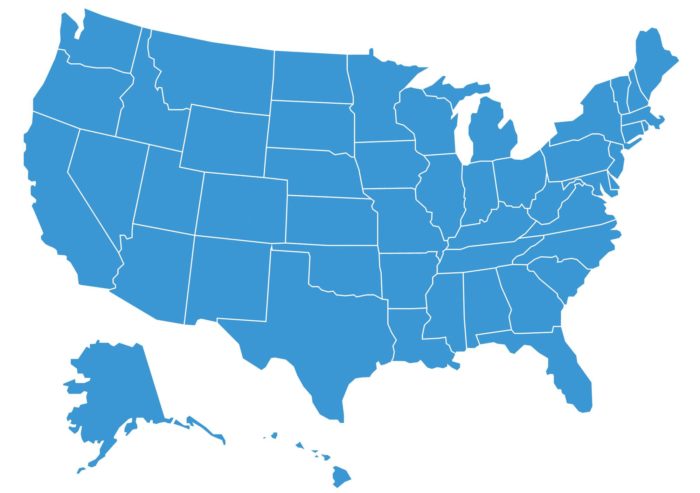
MANY STATES HAVE been vocal in their condemnation of price gouging during the COVID-19 epidemic. To help protect their citizens, state attorney generals have filed cases, issued citations and endeavored to reimburse consumers for wrongdoings.
As of May 2020, Florida’s enforcement of price gouging laws by state officials had resulted in nearly $500,000 in refunds to consumers.
Similarly, New York officials have actively sought out businesses overcharging 10% or more for goods or services related to the containment of COVID-19 in an effort to recompense consumers.
In March 2020, New York’s Department of Consumer and Worker Protection (DCWP) filed a price gouging case against Metro Drugs seeking $37,500 in fines after receiving complaints that the pharmacy was selling face masks at $200 for 20 masks. Metro Drugs had previously been reprimanded for the same violation.
Thereafter, New York Gov. Andrew Cuomo signed a bill in June that expanded the state’s price gouging statute.
Several states have also been working in coordination with online retailers and e-commerce companies to combat price gouging during the pandemic.
Amazon Suspends Offenders’ Accounts, But is Amazon Also An Offender?
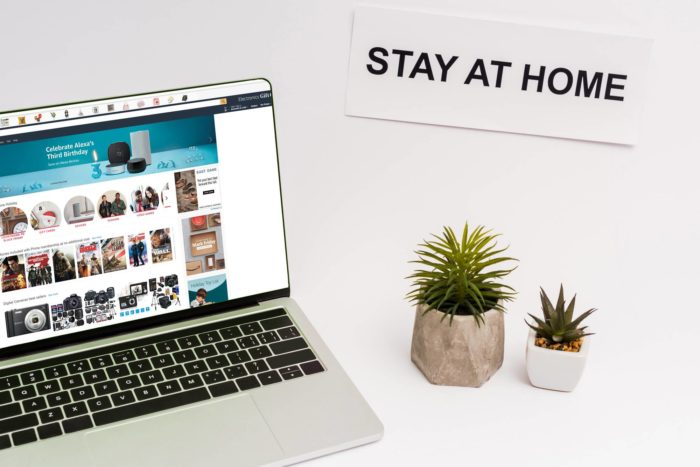
AMAZON WORKED WITH various state attorneys general to prosecute price gouging offenders on its site early on in the pandemic lockdowns, according to The Wall Street Journal.
The U.S. Public Interest Research Group Education Fund (PIRG) found an instance of a third-party seller on Amazon listing a package of 320 Lysol disinfecting wipes, that typically sold for an average of $13.57 over three months, for $220 on March 3.
A researcher for PIRG also identified a company called ErYao that listed a generic bottle containing less than 2 ounces of hand sanitizer for $459 on Amazon.
Amazon issued a statement on March 23 announcing that they had suspended over 3,900 third-party seller accounts from the site for “violating our fair pricing policies,” and stated that they were “actively collaborating with attorneys general in more than ten states, and with numerous federal prosecutors, as they work to investigate and prosecute alleged price gougers.”
Amazon claimed the collaboration was necessary because of price gouging by third-party merchants, sellers not otherwise affiliated with Amazon, who were targeting vulnerable consumers.
While Amazon’s statements seem like progress against price gouging on the site (a six-pack of Maruchan Ramen noodles on Amazon is currently $5.75, a 45% decrease since April 2020), Public Citizen, a nonprofit consumer advocacy organization that has been fighting arduously against COVID-19 related price gouging since the pandemic’s inception, found that Amazon was not as innocent as they claimed.
Alex Harman of Public Citizen stated “Amazon has fundamentally misled the public, law enforcement and policymakers about price increases during the pandemic. Amazon has publicly blamed third-party sellers for price increases while continuing to raise prices on its own products and allowing those sellers to increase their prices.”
A press release by the PIRG reported that nearly one in six of the products sold directly by Amazon had prices spike 50% higher than the 90-day average.
Additionally, according to Public Citizen’s report published September 9, 2020, Amazon listed its own products, including face masks, hand sanitizer, and sugar at markups “ranging from 76% to more than 1,000%.”
Harman, the author of the Public Citizen Report, further commented “Amazon is not a victim in the price gouging on its marketplace. It is a perpetrator.”
“Price gouging is an insidious exploitation of the most vulnerable. There is no excuse for the most successful corporations preying on vulnerable consumers by price gouging.”
In response, consumers have begun filing class action lawsuits against Amazon for their role in price gouging during the coronavirus pandemic.
Unintended Consequences: Impact on Businesses Trying to Survive

PRICE GOUGING LAWS that are meant to protect can also cause unintentional harm.
Small businesses, independent online sellers, and other types of emerging enterprises have also suffered due to COVID-19. The nature, and sometimes vague construction, of price gouging laws has stunted these struggling businesses.
Price gouging laws were originally written with short-term emergency situations in mind. When a state of emergency is declared that requires consumers to stock up on essentials, the length of the triggering emergency usually only lasts for days or weeks. In these cases, companies suffer exceedingly less than consumers (if at all).
In contrast, the coronavirus pandemic is extraordinary in length and scope. Businesses that are not able to increase their prices to meet the additional costs caused by COVID-19 may not be able to stay open, which further harms the nation’s economy.
Attorneys Christopher Ondeck and Jennifer Tarr, in an August 2020 article published by Fortune, explain that the change in the market resulting from the coronavirus pandemic has caused businesses to incur large costs to alter their operations accordingly, and some are unable to adapt because of price gouging regulations.
“From the end of March through mid-April, transactions at full-service restaurants plunged 79%. Grocery store food demand is up, with some nonperishables seeing over a 200% increase in demand. Suppliers have shifted production to meet demands, often having to retool plants, packaging, and logistics to get products to consumers. Many suppliers face increased costs throughout the supply chain. Businesses normally respond to price signals to make planning decisions, but now, prices are frozen or capped,” they explain.
Other costs to businesses, such as annual price increases to provide employees cost-of-living salary increases and to account for inflation, also may now be unavailable to owners.
According to Ondeck and Tarr, “This year, such an increase could trigger investigations and lawsuits from state attorneys general and the private plaintiffs’ bar as possible price gouging. This creates a perverse incentive to hold down wages and reduce sales volume, while margins vanish.”
The chilling effect of price gouging laws on competition and innovation during this long-term pandemic signals an ensuing decline in growth and harm to the national economy and markets.
To protect businesses and consumers alike during this tumultuous and unprecedented time, new legislation should be drafted that is unambiguous, narrowly tailored, and written with pandemic issues in mind.
How Will The Pandemic Affect Holiday Shopping?

AS CORONAVIRUS CASES resurge, consumers should be prepared for new hoarding frenzies and shortages, according to Yahoo News.
“Lack of supply from store closures, COVID-19 protocols at manufacturing facilities, and the usual holiday shopping could combine to create shortages,” Yahoo explains.
This news is disconcerting to many Americans, who are still reeling from the anxieties and financial damage they suffered earlier this year.
A YouGov poll commissioned by digital commerce solutions firm Scalefast found that 25% of consumers are stressed about their ability to afford gifts this year, as reported by Retail Dive.
Thirty percent of consumers polled stated that they will spend less this year due to the current state of the U.S. economy in wake of the coronavirus pandemic. Further, 57% of shoppers rated the current economy poorly, which is a 37% increase from 2019.
In the current environment, essential goods and services (as related to price gouging regulations) and holiday shopping items have considerable overlap, but many gifts that consumers wish to purchase will not be subject to the laws.
The lack of price gouging protections for non-essential holiday shopping, and a continued trend of online buying this year, may create a disadvantage for consumers.
A poll on holiday shopping concerns during COVID-19 pandemic, published by Statista Research Department on Oct. 5, 2020, showed that consumers are greatly concerned about in-store shopping based on health and safety concerns.
Further, data reported by Ryan Morfin, a financial strategist and CEO of Wentworth, shows that online shopping is “up 35% from last year” and will make up “half of the holiday spending.”
A combination of increased online holiday shopping and a booming e-commerce industry as a result of coronavirus fears could result in higher prices for consumers.
What Can Be Done To Prevent Future Price Gouging?
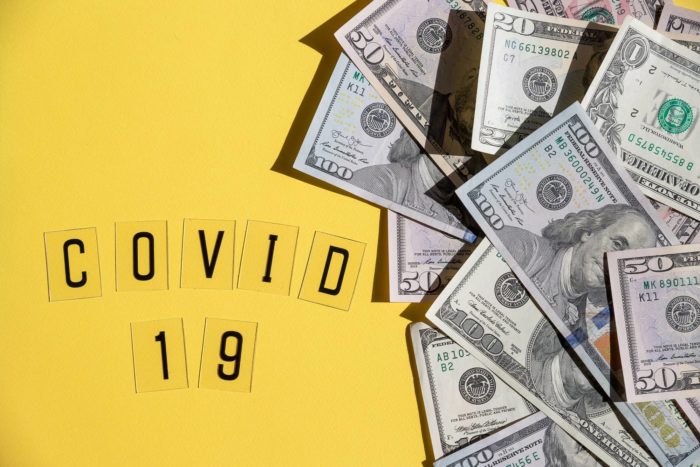
CIVIL ACTIONS BY individuals against price gouging offenders, altering current price gouging laws to provide clear and concise requirements, and additional legislation by states and the federal government are all examples of actions that can be taken to prevent future price gouging.
Enacting a single, nationwide, federal price gouging law is one of the simplest ways to combat price gouging in the U.S.
Earlier this year, Members of Congress drafted anti-price gouging provisions into the stimulus bill also known as the Health and Economic Recovery Omnibus Emergency Solutions Act (HEROES).
The proposed terms would make the sale of goods or services for “unconscionably excessive” prices during the pandemic and actionable civil offense that could be enforced by state attorneys general and the Federal Trade Commission.
Although the bill was passed by the House in May, it has since stalled due to frictions between the Democratic and Republican parties. This month,President-elect Joe Biden urged Congress to “come together” to pass the $2.2 trillion Heroes Act.
If the HEROES Act is passed soon, some of the projected price gouging surges can be prevented.
Price gouging by sellers can also be curtailed in the future by using private litigation to hold perpetrators accountable. Civil actions by individuals, such as class action lawsuits, provide victims of price gouging a legal remedy against illegal price increases.
Various class action lawsuits have already been filed by consumers seeking compensation for seller and merchant violations of price gouging laws. Some of these price gouging lawsuits include:
- Alaska Man Face Mask
- Amazon N95 Masks
- Amazon Household Goods
- Amazon Toilet Paper & Hand Sanitizer
- Albertsons Grocery Retailer
- eBay Price Gouging
- eBay N95 Mask
- ‘Love & Hip Hop’ Star Among Those Facing COVID-19 Loan Fraud Charges
- NY AG Challenges Increased Egg Prices During Coronavirus Outbreak
- Quality King Lysol Products
- Walmart & Costco Egg Price
How Consumers Can Combat COVID-19 Related Price Gouging
CONSUMERS CAN TAKE action to help prevent further price gouging by following the tips and direction provided by the nonprofit consumer advocacy organization Public Citizen in their Public Citizen Guide To Fighting Price Gouging During The COVID-19 Pandemic Emergency including:
- Encourage Congress to pass a statutory federal ban on price gouging: H.R.6450 / S.3853 – the Price Gouging Prevention Act.
- If your state doesn’t yet have a protection, then contact your state legislature to tell them you want a state law passed.
- In order to determine if the price you are paying for a product is too high, you can use an online price tracker, like CamelCamelCamel.com and Keepa.com, to find a product’s price history.
- If you have personally experienced price gouging, file a complaint with the DOJ National Center for Disaster Fraud by calling the National Hotline at (866) 720-5721 or by submitting a price gouging complaint here.
- Also, file a complaint with your Attorney General. Find out how here.
- If you experience price gouging on an online platform you can complain directly to eBay and Amazon – and follow the instructions provided.
- Consider sharing instances of price gouging that impacted you with your elected officials or local media to name and shame companies engaged in price gouging.
Have you experienced price gouging during the coronavirus pandemic? Are you worried about the holiday shopping season? Share your story with us in the comment section below!
Dani Santos is a writer and editorial assistant at Top Class Actions. Prior to joining TCA, Dani worked at law firms in Hawaii and California. She holds a Bachelor of Arts in Economics and Political Science from Hawaii Pacific University, where she concurrently worked towards a Master’s in Business Administration. She earned her Juris Doctorate from the University of San Francisco School of Law.

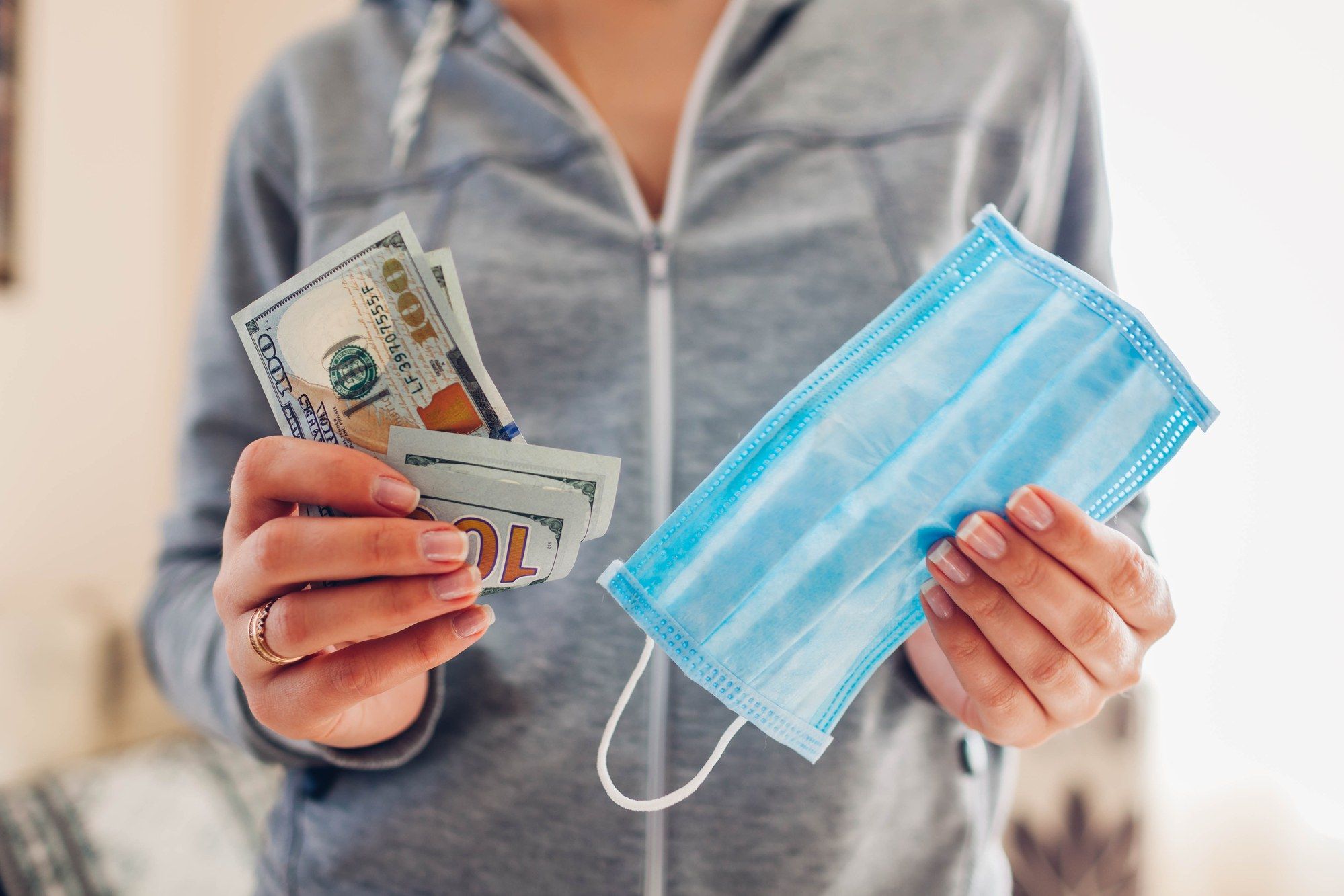
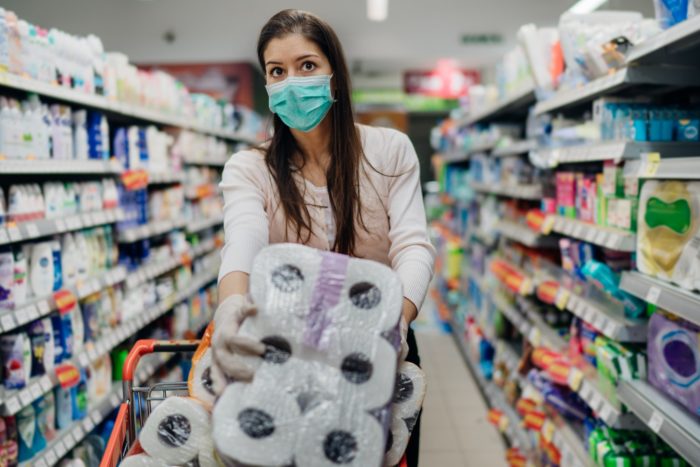


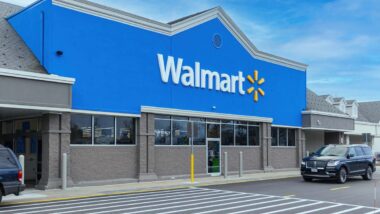

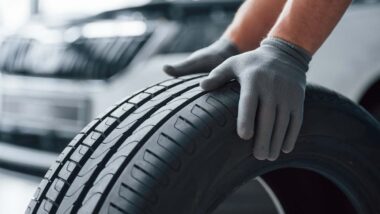
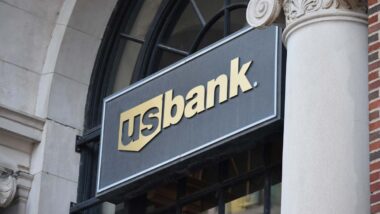
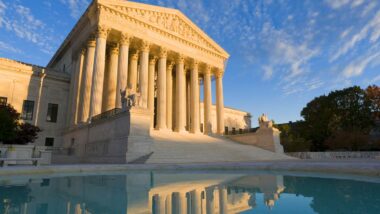
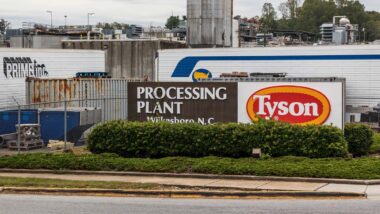

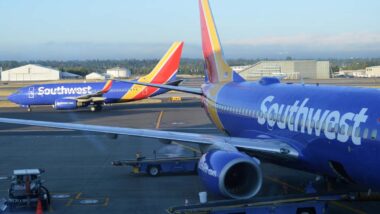

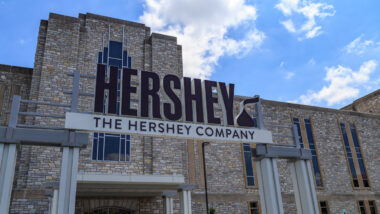


25 thoughts onTCA IN-DEPTH | Price Gouging Amid COVID-19: What Are Your Rights?
Add me
There’s still price gouging going on on Amazon, for one. Tried to buy a Clorox bleach pen today and they wanted $35 plus $7.55 shipping for one pen that normally fits about $4! Grabbed screen shots and tried reporting to Amazon, but they don’t seem to care.
Add me .Real high prices here in Nevada especially the gas and food and Amazon. Add Me
Walmart and Amazon and gas prices all went up real since Covid we r . Seniors hard to live these high prices on a fixed income especially the food prices . Add me